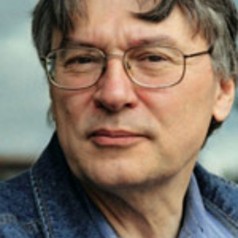
Science & You’s call for papers, which was closed on 19 February, aroused major national and international interest. Bernard Schiele, Professor at the University of Quebec in Montreal and member of the Scientific Committee gives us an overview of papers received.
What criteria has the Scientific Committee adopted in order to make its choice?
Bernard Schiele: “The Scientific Committee defined the main themes, which had to be both explicit and open-ended so that each participant could find their place. The first criterion is relevance in relation to the theme. It’s important to continue communicating on science. All the Scientific Committee’s members have been actively participating in assessing the submissions and issuing recommendations.
The second criterion is the relationship to current events. Submissions have to fall within the focuses of contemporary questioning. The third criterion is the state of knowledge on the subject. We have had to be very careful as far as this criterion is concerned, as nobody can have universal knowledge of a subject and issues differ from one country to another. We have to keep an open-mind and avoid sociocentrism. The final criterion is the rigour of the argument in the presentation. We make sure that the field of knowledge is properly developed and leads to further reflection. We do this for academic fields and practitioners alike, as Science & You is a platform for encounters between these two actors.”
What types of papers have you received?
Bernard Schiele: “We’ve mostly received what you might call simple papers, i.e. presentations of research work and analyses of mediation actions. 267 out of the 419 papers we’ve received are simple papers, accounting for almost 63% of all submissions. Most of them are articles on research or presentations of innovative practices. We’ve received 45 panels, i.e. open questions on a theme, and 77 symposiums, i.e. proposals for colloquia in the colloquium. A huge number, as we have to choose! We’ve also received 30 proposals for posters.”
Which countries responded to the call for papers?
Bernard Schiele: “59 countries responded, for a total of 488 registrations and 88 speakers. A real success! France is in the top 10 of course, as is always the case with the host country, with 254 proposals. Then come Germany with 18 proposals and Canada with 14 proposals, along with the United Kingdom and the United States. Brazil, Italy and Portugal follow very close behind, along with China and Georgia, with a dozen or so proposals each. France and the other top 10 countries account for 366 proposals in all. The remaining 122 proposals are divided between South Africa, Spain, India, Holland and North Africa ((Tunisia, Morocco and Algeria).”
